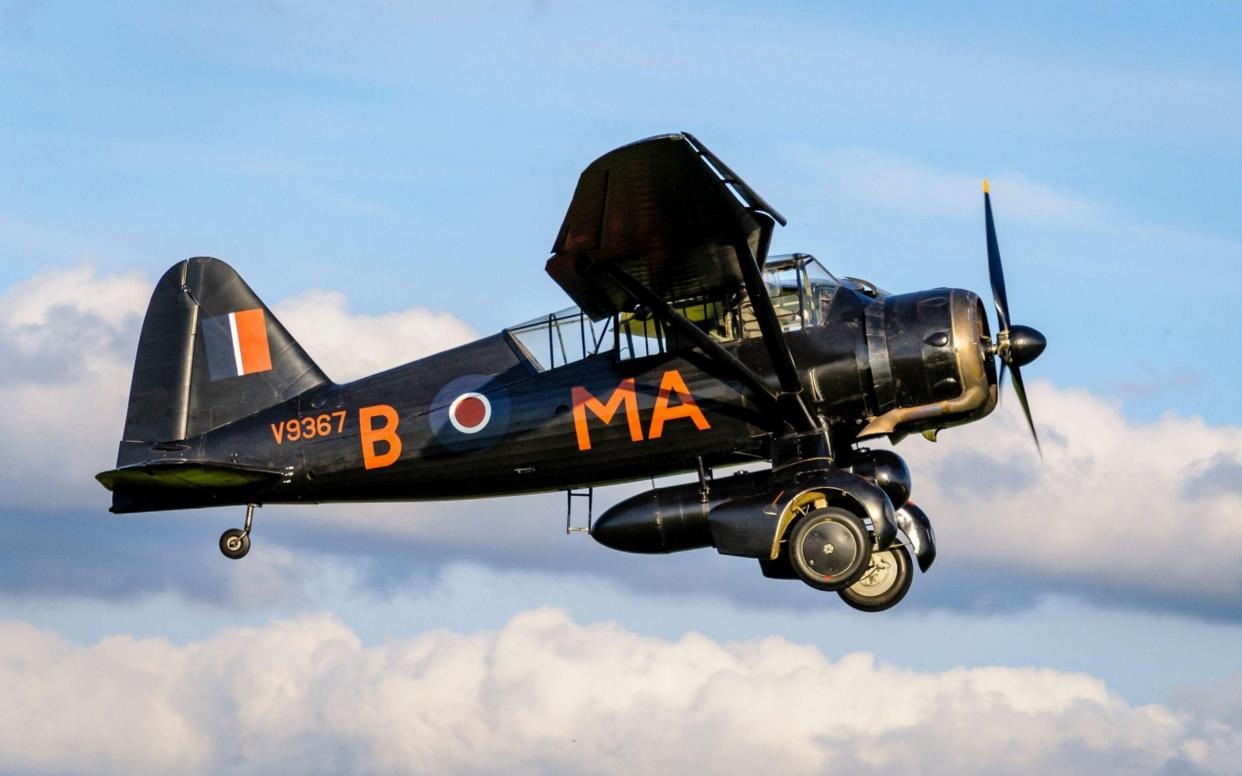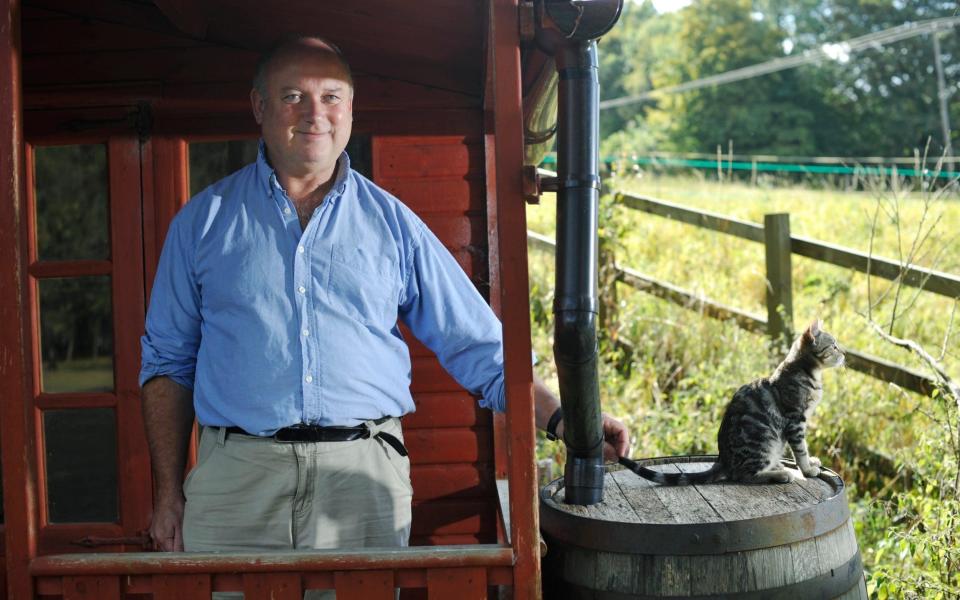The Autumn of the Ace by Louis de Bernières review: flying on empty

- Oops!Something went wrong.Please try again later.
The Autumn of the Ace opens in 1945, at the close of a war but, psychologically, it never leaves the battlefield. Something similar seems to be true of its author: six novels and more than a quarter of a century after Louis de Bernières first found bedside-table-book-stack status with Captain Corelli’s Mandolin, a Second World War love story set on a Greek island, he has rarely strayed far from a wartime setting. Why should he, when there is no shortage of fictional fuel in a half-century of human destruction?
Yet somehow, with this, his 10th novel, the engine has begun to seize – and not in a way its ageing protagonist and decorated flying ace Daniel Pitt could tinker back to life with a spanner.
The humane, unapologetically funny style in which Captain Corelli’s Mandolin stared down the barrel of horror and in so doing found hope has given way to an odd kind of emotional emptiness, as though the writing itself is traumatised and, like so many of its too-bloody-English characters, has responded by buttoning up its feelings and getting on with the job.
A pilot in the First World War and a Special Operations Executive agent in the Second, Daniel returns home from service minus two toes and plus a second helping of unimaginable memories.
Readers of the preceding two novels, The Dust that Falls from Dreams (2016) and So Much Life Left Over (2018), will recognise most of the cast of characters he comes back to: the three families at the centre of a trilogy, loosely modelled on John Galsworthy’s Forsyte Saga and which began in a London suburb, have gradually unravelled across time and place, tugged by the overwhelming forces of war.
If dust was falling in the first instalment, the ways in which it settles are the subject of the third. Each of the characters sets out with the intention of resolving the past: Daniel to repair relations with his estranged son Bertie and his wife Rosie; Rosie to confront the grief she interred in 1917 along with her first fiancé.
Her bohemian sister Christabel and Christabel’s lover Gaskell each try to make their peace with the uneasy love triangle they occupy with Daniel, while his alcoholic brother Archie slowly drinks himself to destitution.
This criss-crossing, almost incestuous map of family relationships is easier to follow than it sounds – de Bernières’s 30 years of experience with puppet-mastering a narrative show. At times, though, it feels strangely off-balance: one important figure who dies horribly within the first 50 pages is barely mentioned again, while several of the more peripheral siblings occupy a chapter before vanishing.

But the real problem with The Autumn of the Ace is that it does not feel like a truthful depiction of its central preoccupation: how the survivors of the Lost and Greatest generations could possibly live with all they had seen and done and sacrificed.
Moments of unbearable emotional intensity, like the confrontation between Daniel and Bertie, sound more like Downton Abbey out-takes than real human encounters (“What the bloody hell are you doing here?” … “Kindly speak to me with some respect. I am your father”), parodic rather than revealing of middle-class English repression.
The novel’s unimaginative treatment of class in general also ages it badly – Oxbridge types are always in the foreground, while cheerful cockney geezers with names like Oily Wragge pop up now again to remind us that “the Captain and me were good mates, even though he was a toff and I was just a mister”.
The exceptional derangement of early-20th-century history demands exceptional literary treatment, as the novel’s occasional, shuddering historical specificities remind us.
Near the end, Daniel confides to his daughter-in-law Kate that he once dropped a parachutist out of a plane only to realise her harness was caught in the tail wheel; there was nothing he could do but fly back to the airstrip as she gradually froze to death.
Why does he mention it? To remind Kate to keep her marital problems in perspective. The bleak, almost nihilistic certainty that life is bad and war is worse drags behind this stiff novel, like a trapped parachute.
The Autumn of the Ace is published by Harvill Secker at £17.99. To order your copy for £15 call 0844 871 1514 or visit the Telegraph Bookshop

